Under the skin of the Dakar-spec Dacia Sandrider
Fresh from a 1-2 in Morocco, Prodrive gives us the lowdown on what makes this Dacia more special than most
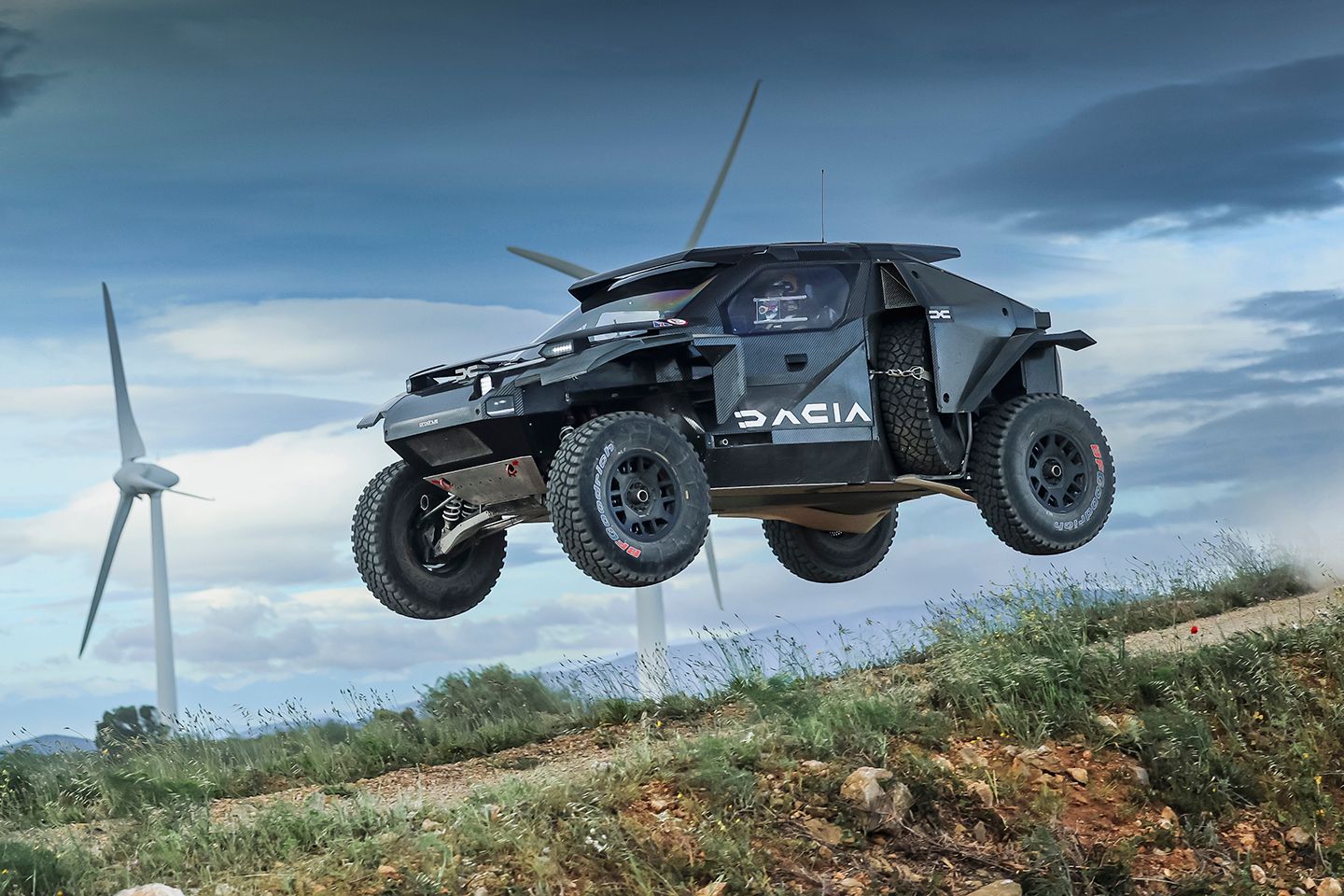
It would be fair to say that the Dacia Sandrider project has already exceeded expectations. The collaboration with Prodrive was only announced in June of last year; following the reveal early in 2024 and a summer of testing, the Sandrider crews entered the Rallye du Maroc last month ostensibly as a test… and took the top two steps on the podium. Sebastian Loeb was fastest on two of the stages, and Dacias recorded top times on 60 per cent of the competitive kilometres. Morocco saw the Sandriders finish ahead of GR Hiluxes, Ford Raptors and Rally Minis.
So a great result all round, then, but now the big test looms: the Dakar rally begins early in the new year, and preparation is well underway (the cars will go to Barcelona for scrutineering at the end of November, in fact). An invitation to see what goes into a Dakar assault at Prodrive wasn’t one to pass up.
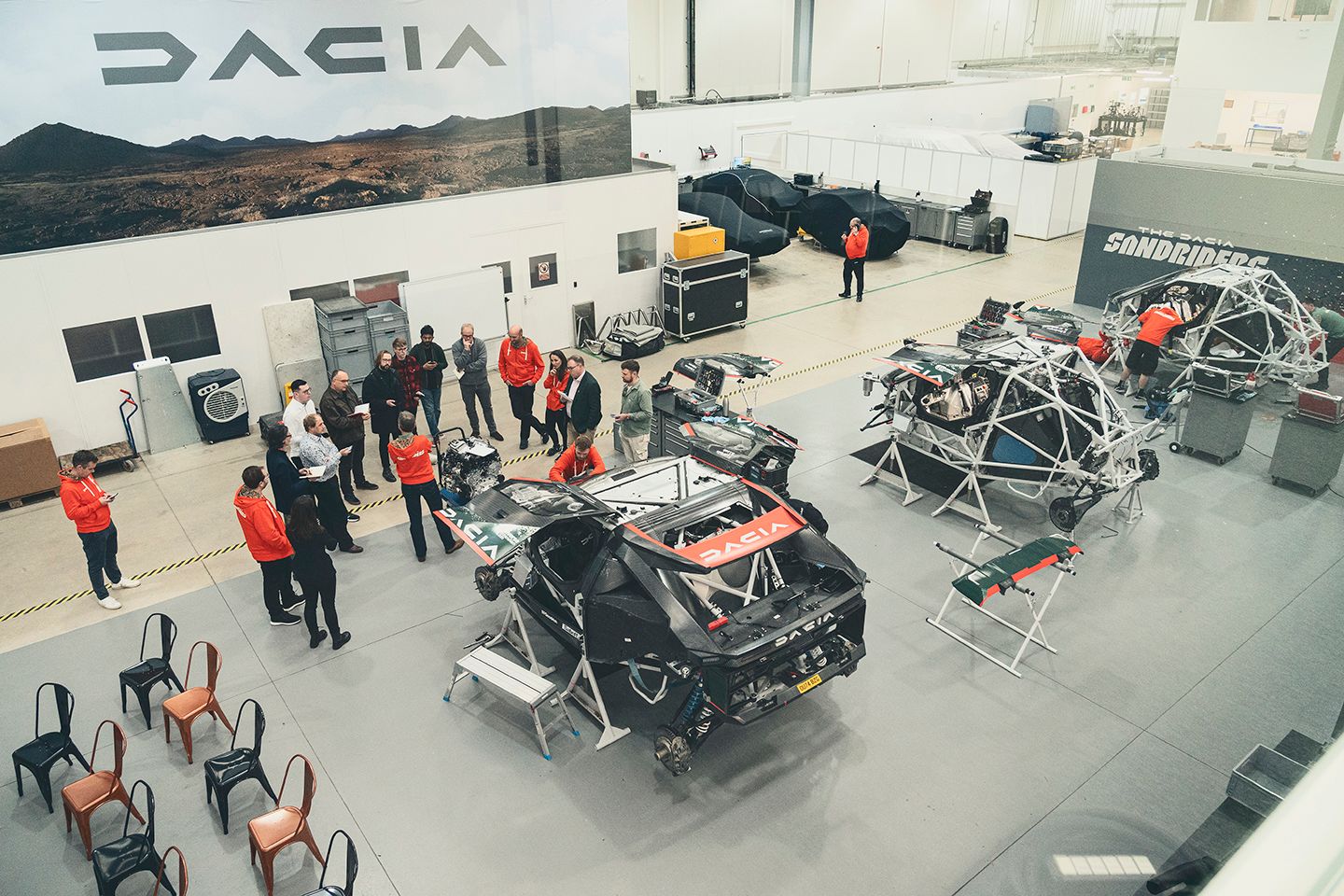
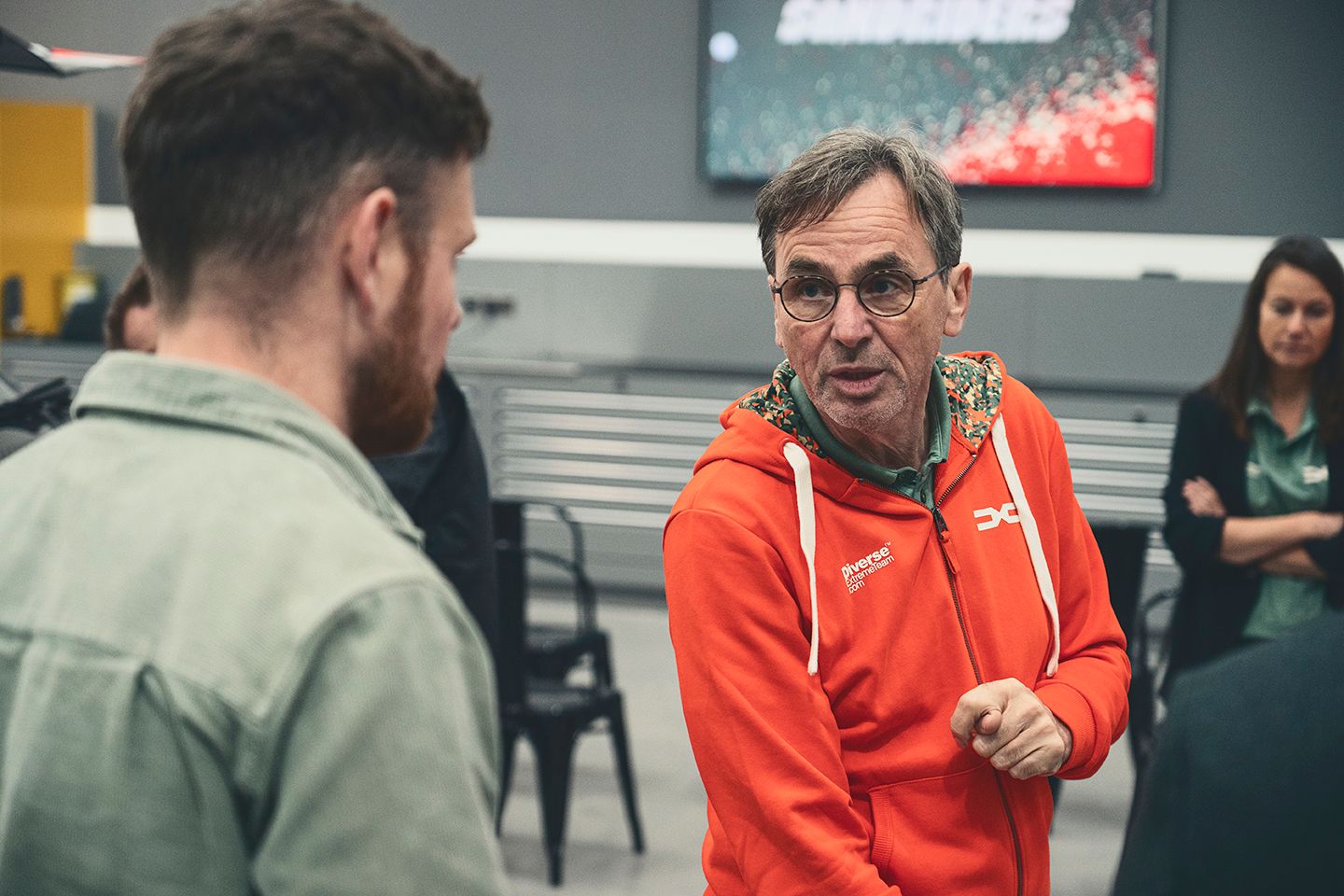
They’re incredible cars to take in when disassembled, all three Sandriders. Their tubular chassis seems to use enough steel to underpin two cars, the Reiger dampers are works of art, you could live in the 560-litre fuel tank and the interior would surely be snug for a single stage - let alone weeks in the desert. And while the Sandriders look like off-road spaceships, much of the design is relatively simple by motorsport standards; in rally raid racing durability and dependability is preferable to outright speed, so there’s no paddleshift, no hybridisation, and the engine is very closely related to stock. A very different approach to the Audi RS Q e-tron, basically. A more Dacia approach, you might say.
If basically in the cabin with driver and co-driver, low and so far behind the front axle, the twin-turbo 3.0-litre V6 powering the Sandrider is much the same as the unit powering the Nissan Z. Technical Director Philip Dunabin explains that it’s dry-sumped, the exhaust manifold is new and the ECU is changed for something more motorsport appropriate, but the fundamentals - block, crank, heads, cams - are production spec. Which is cool, giving the mad Sandrider a tangible showroom link (for some buyers, anyway). Goes to show the scope Dacia has for building something like this, too, with huge resources at its disposal within the Renault group and its alliances.
To be honest, listening to Team Manager Alan McGuinness it seems like prepping three race cars is a minor task compared to getting the whole support crew ready. There will be 62 staff and 25 vehicles heading out to Saudi to keep three cars, three drivers and three co-drivers running over something like 4,700km of competitive stages and almost the same again in common routes. Everything that could possibly need replacing - diffs, gearboxes, suspension, brakes - is taken, and three lots of it. The support vehicles are almost as impressive as the Sandriders themselves, with spares, fabrication and workshop trucks carrying everything a rally raid car could ever need (plus mini workshops to fix the broken bits), the T5 trucks that will shadow the cars in the sand, huge trailers to carry hundreds of tyres - enough for a set per car per day - that weigh something like 44kg with wheels on. A Duster will go as well (because it’s not a Dacia event without a Duster) as well as a Land Cruiser, Nissan Navara and nine motorhomes.
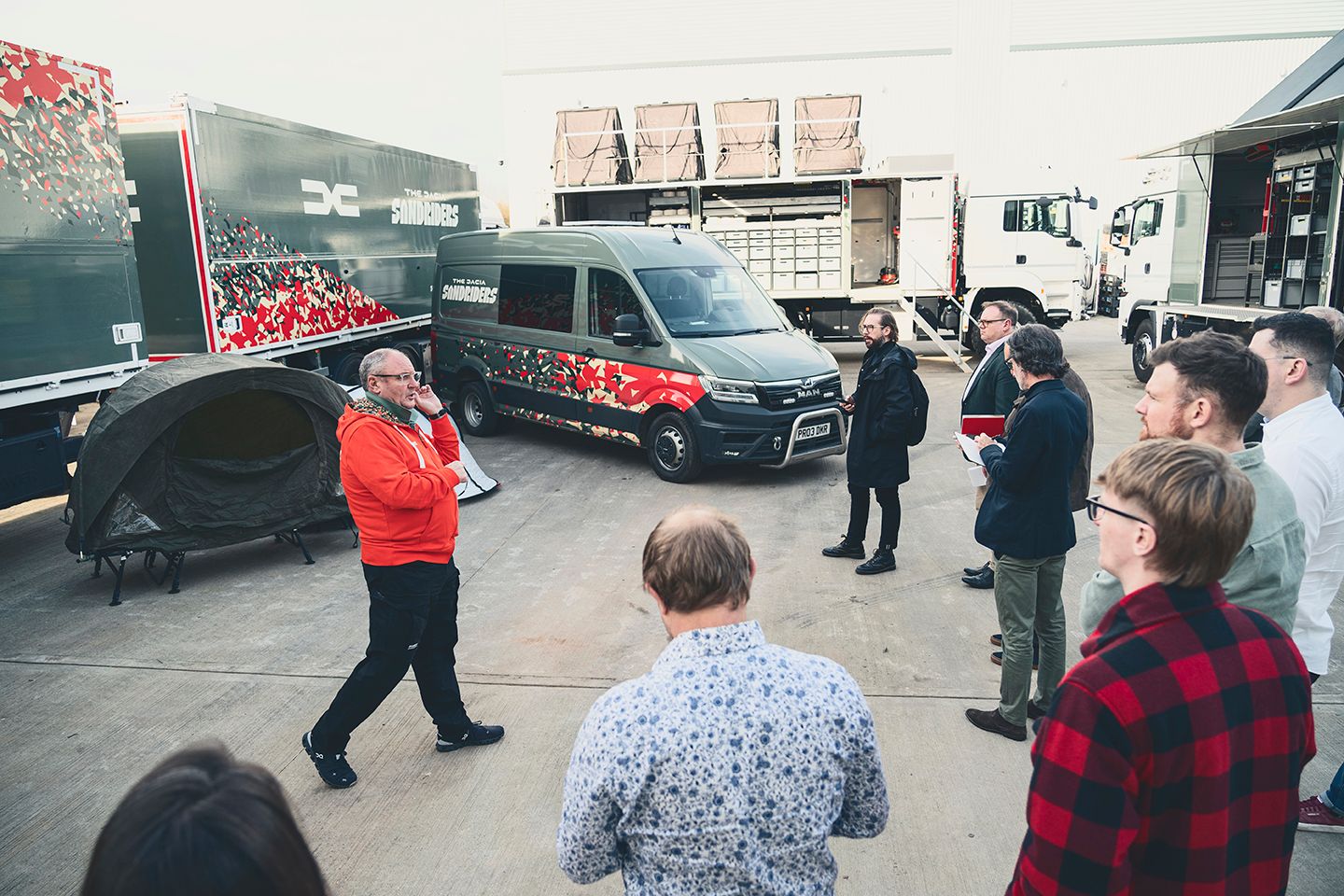
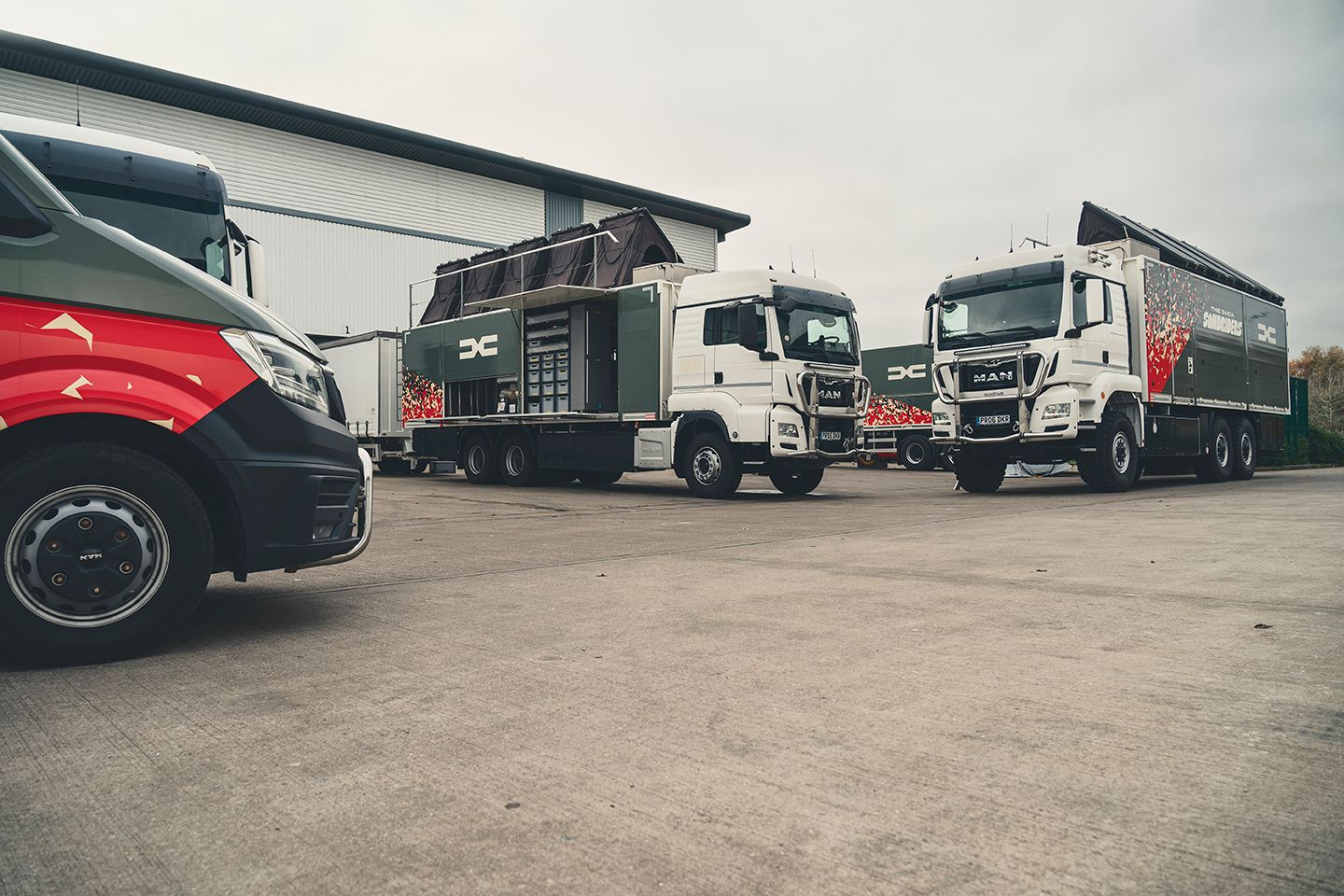
It’s an army then that goes to Dakar - so much so that 'team' sells the extent of the operation short. The only things provided on-site are showers, food and toilets - everything else goes in the trucks. And the Duster, perhaps. But it seems efficient, too, with tents on top of trucks, generators onboard and additional water carried up front as well. Loads of race kits are carried, but even washing machines will go to Saudi Arabia, just to be sure. (Those that are in tents on the floor now have raised ones after some recent flooded events - nobody wants to wake up soggy for a day on the Dakar.)
There’s a quiet confidence around the Sandrider team in attendance at Prodrive, no doubt buoyed by the result in Morocco. They’re all well aware of the enormous task ahead of them, with so much experience of rally raid in the team, excited to prove their mettle rather than daunted by the challenge. Prodrive’s recent efforts with the BRX Hunter, which secured three consecutive T1+ Dakar podiums, will surely help Dacia’s bid come the new year. They know what it takes to compete in the toughest rally there is, and Dacia will be desperate to build on the recent Morocco success. The three Sandriders will certainly be among those to watch come January.
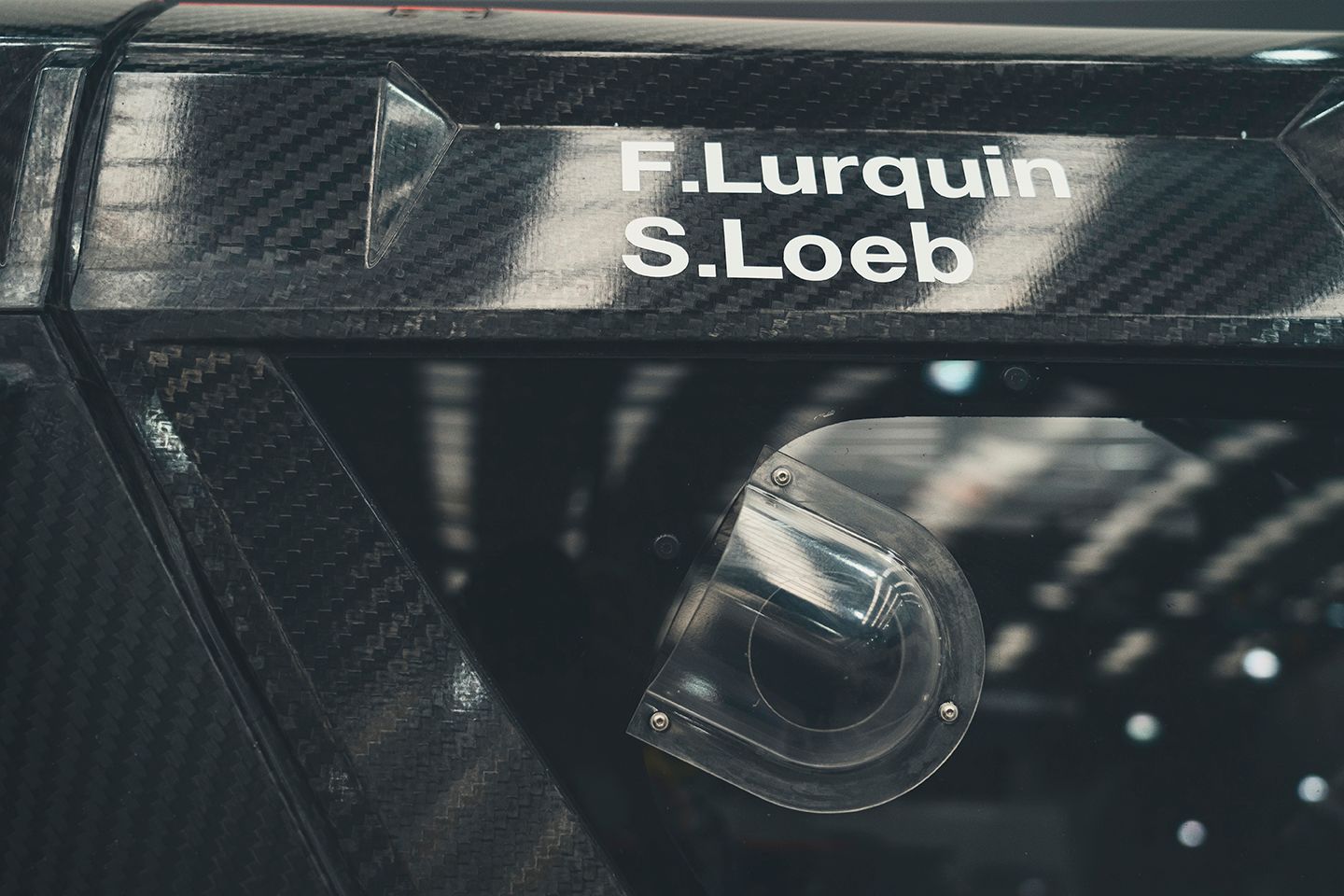
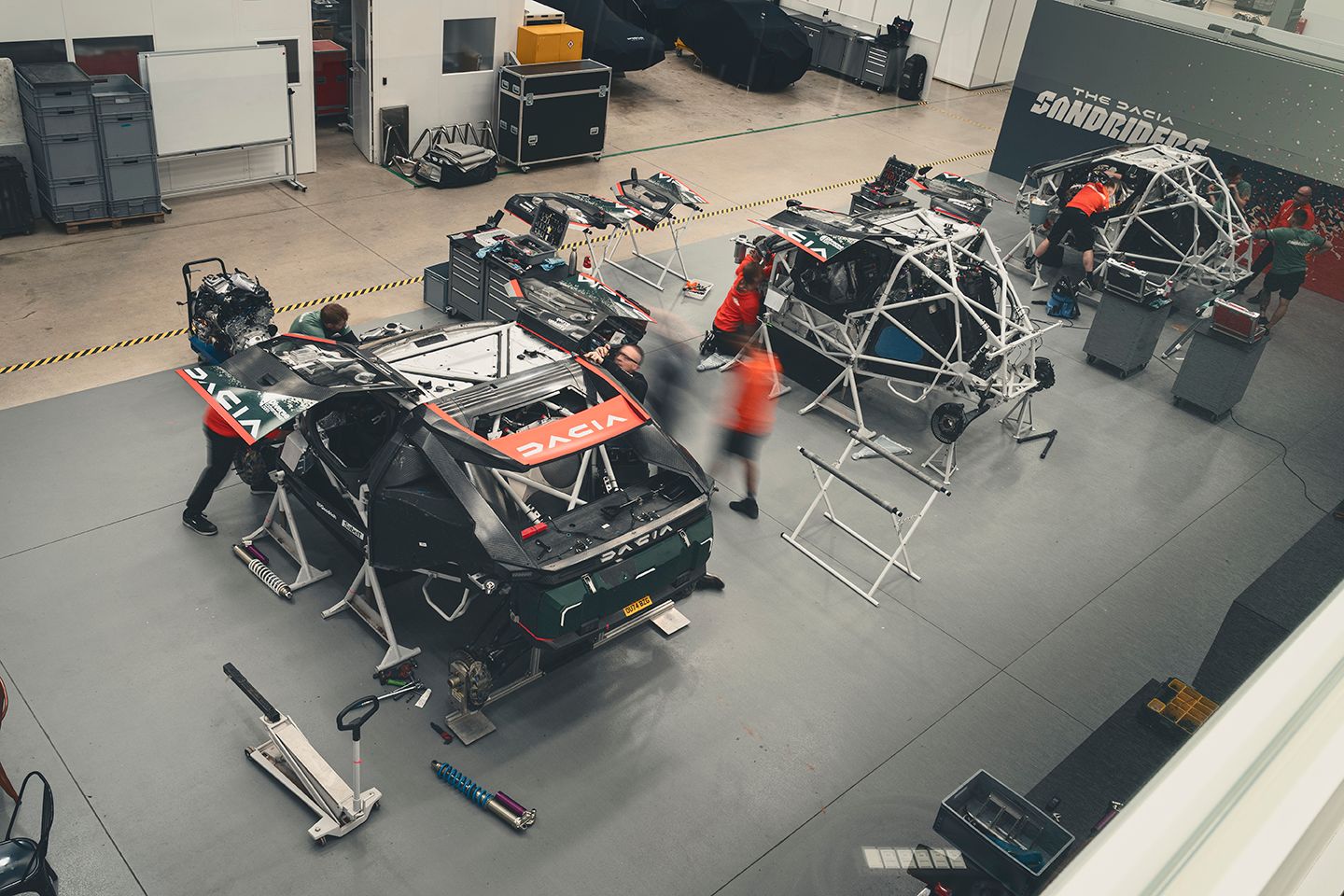
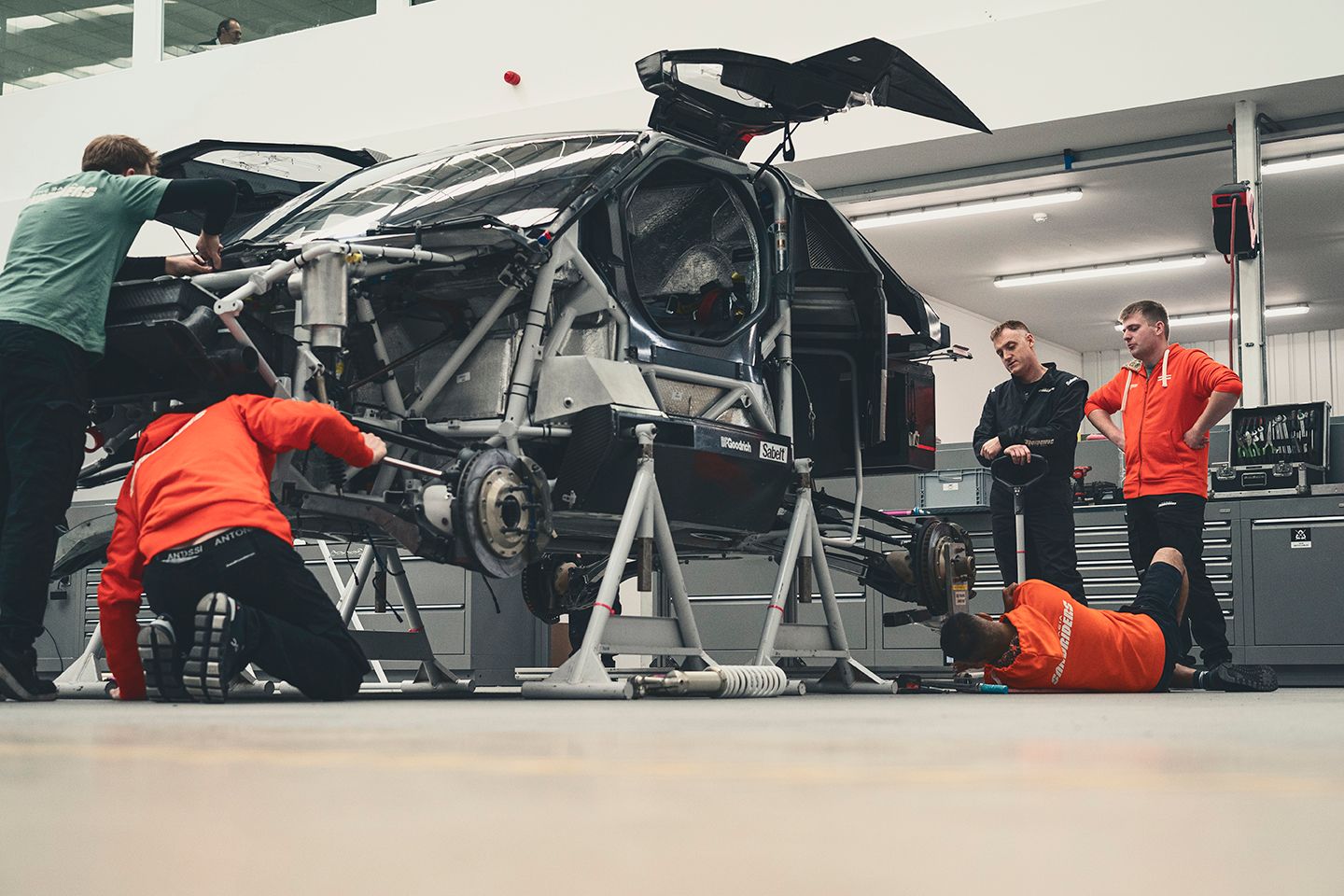
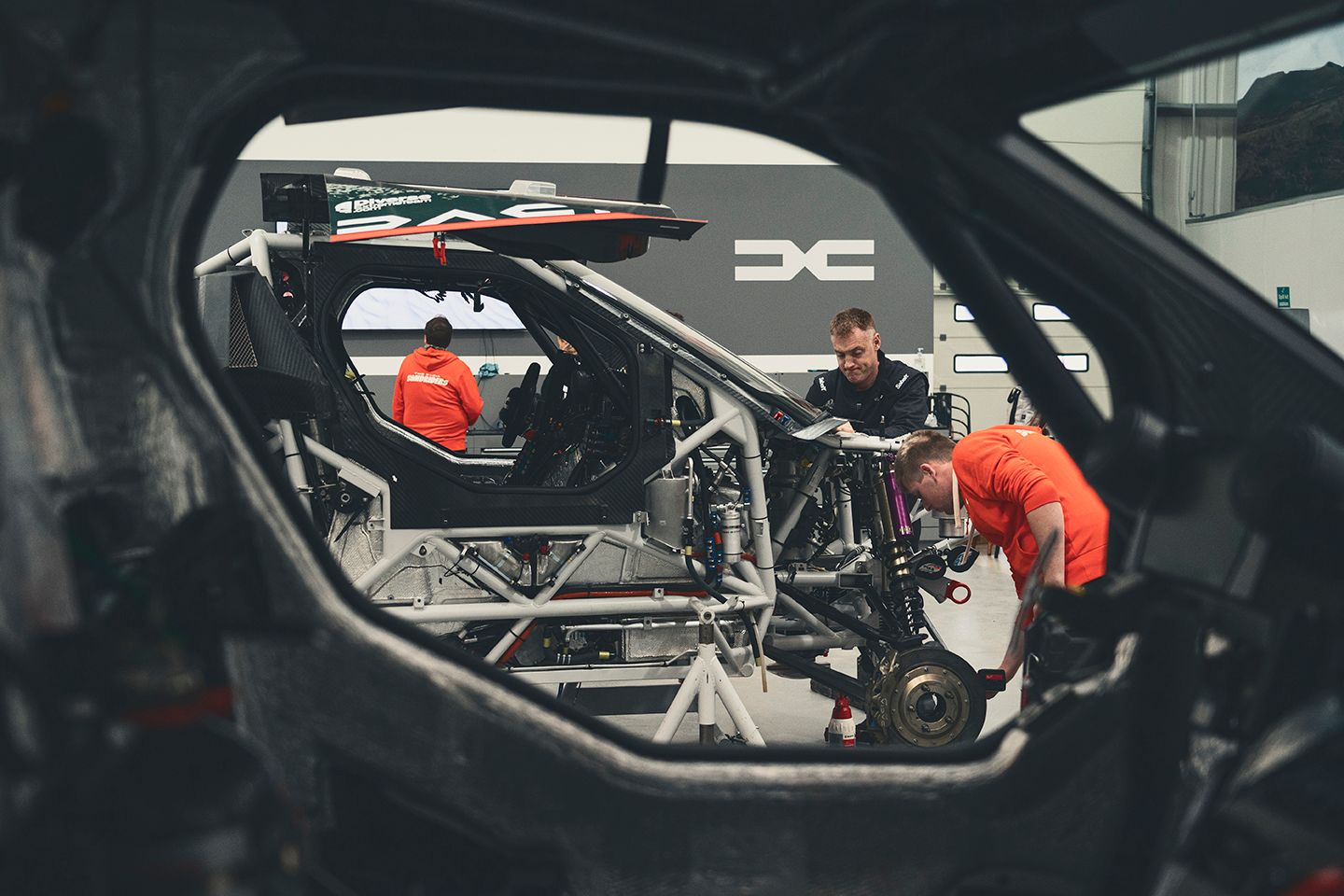
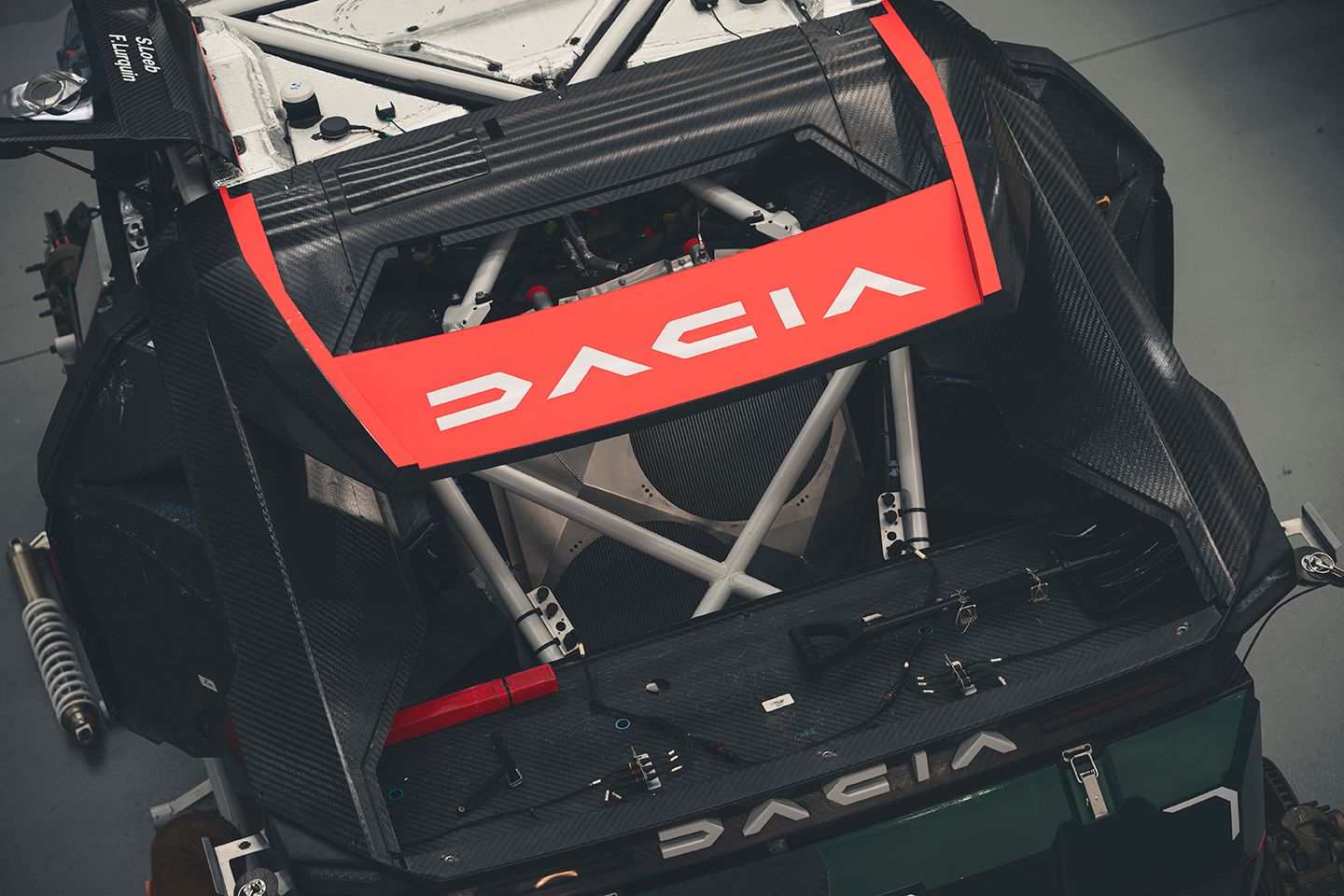
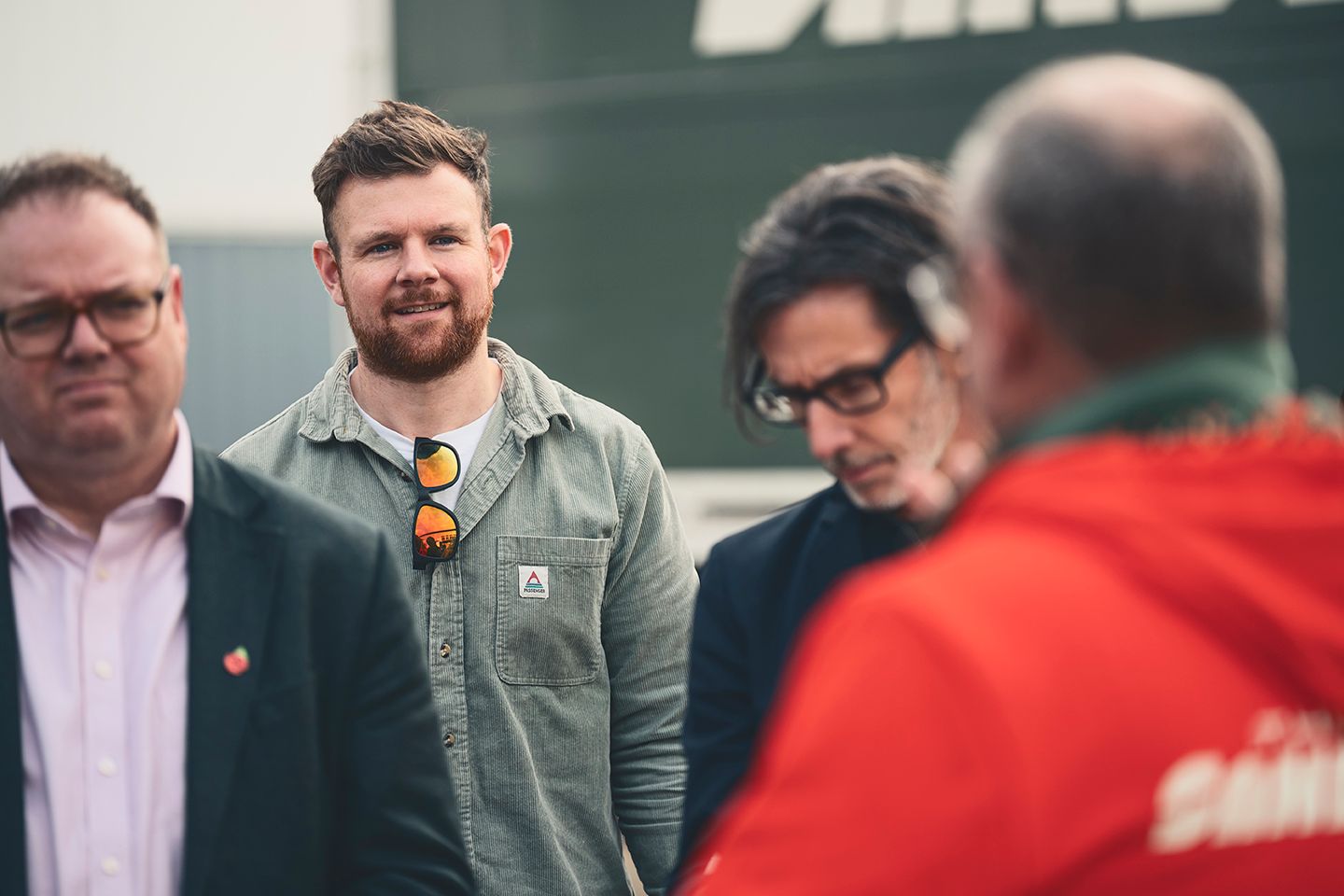
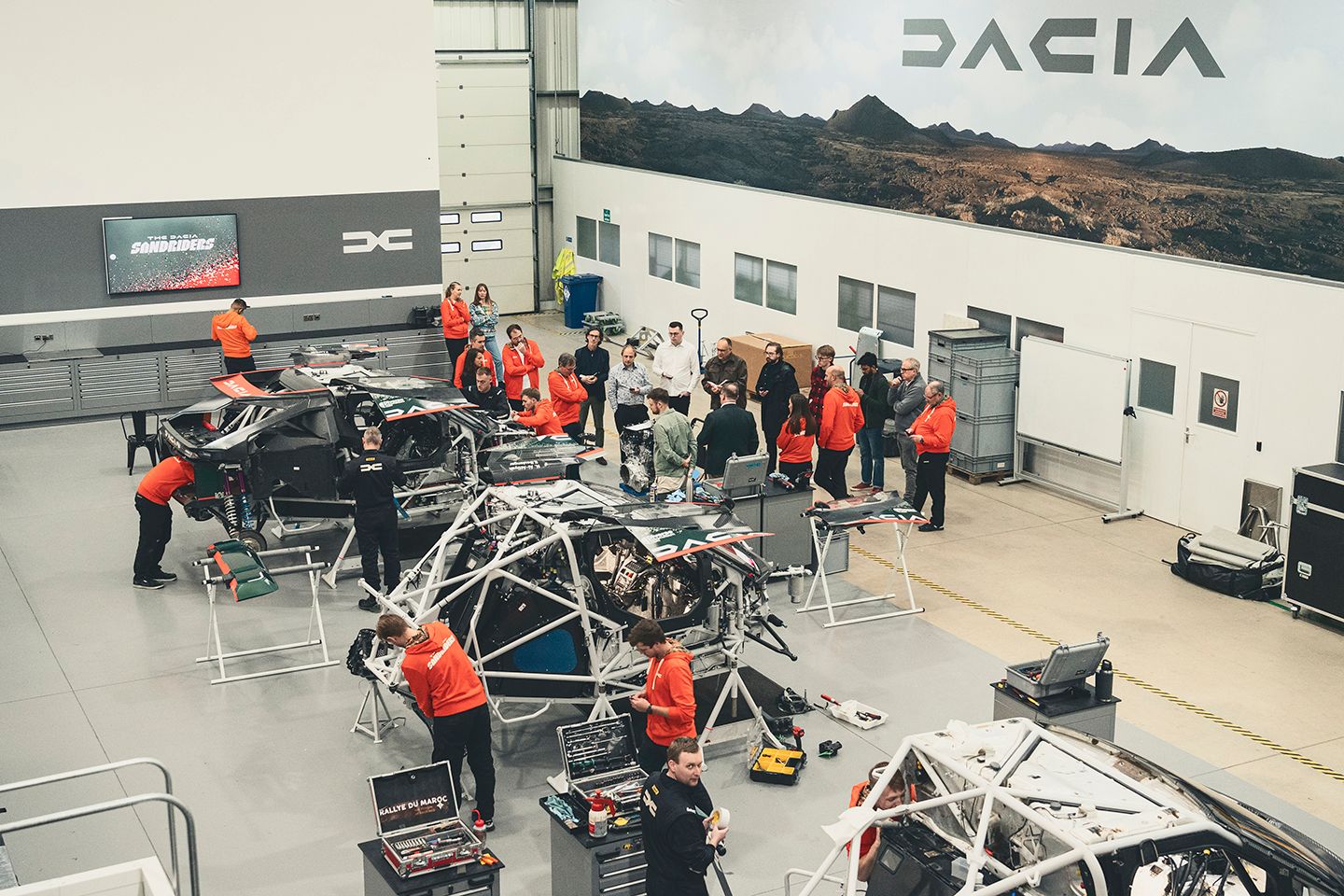
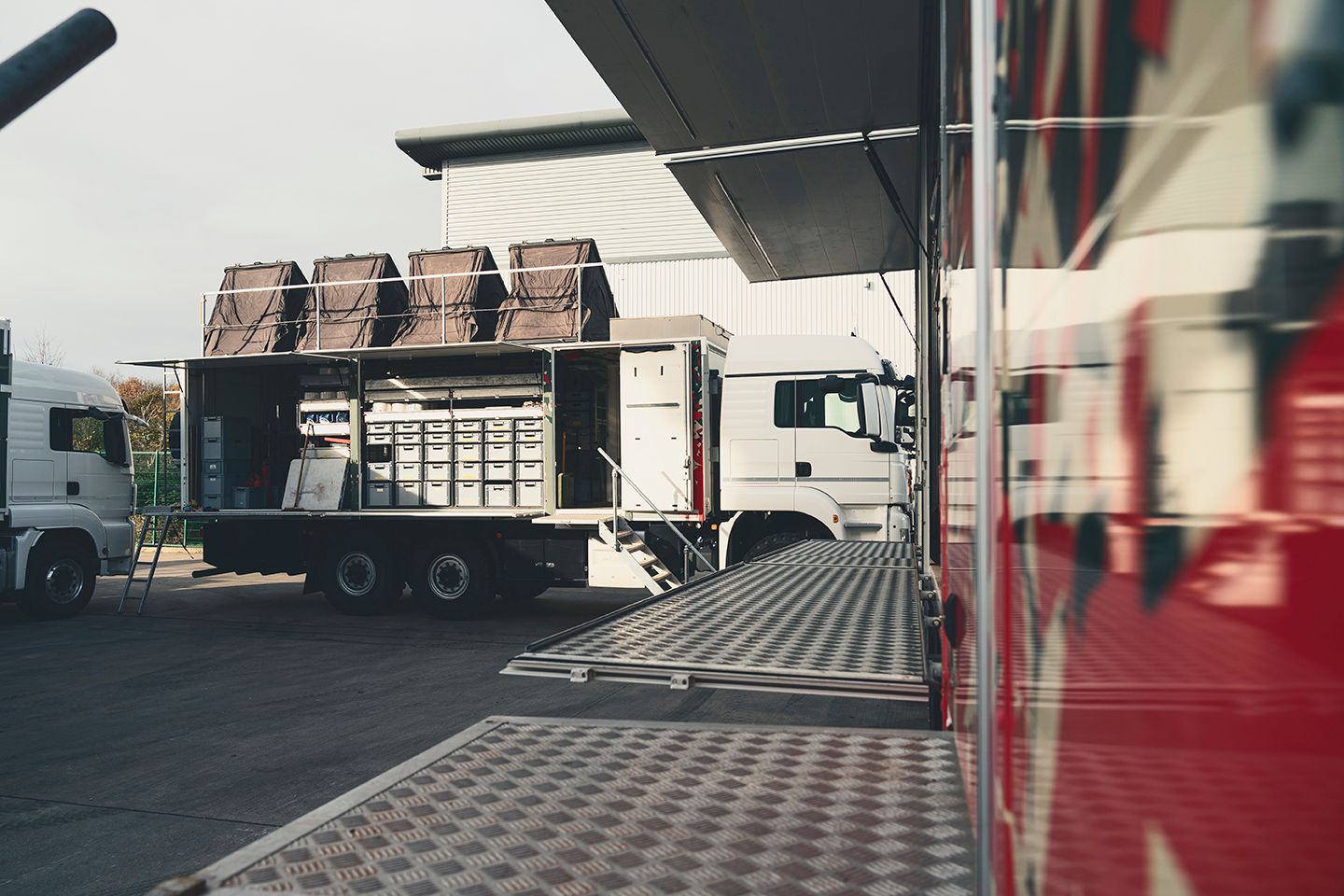
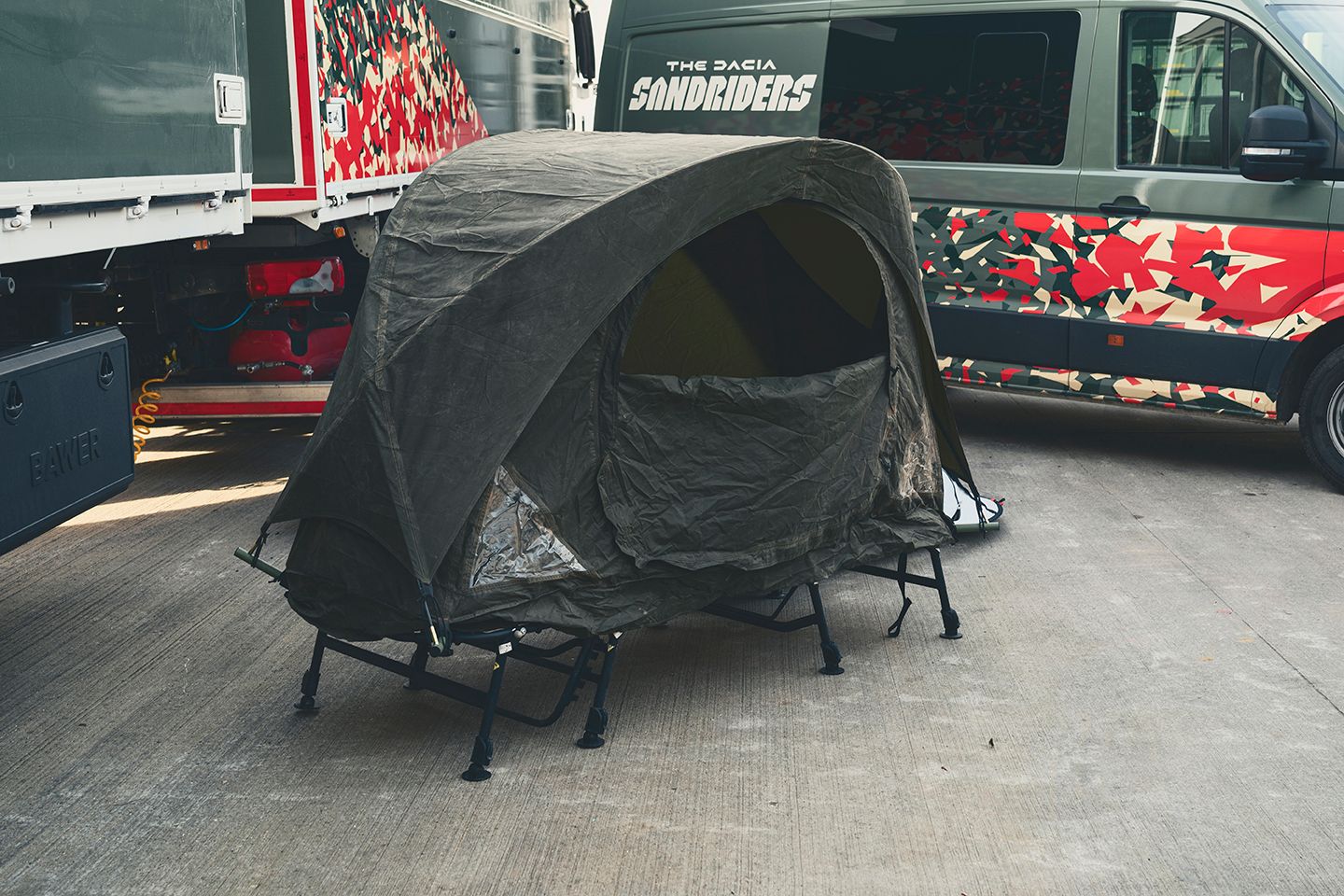
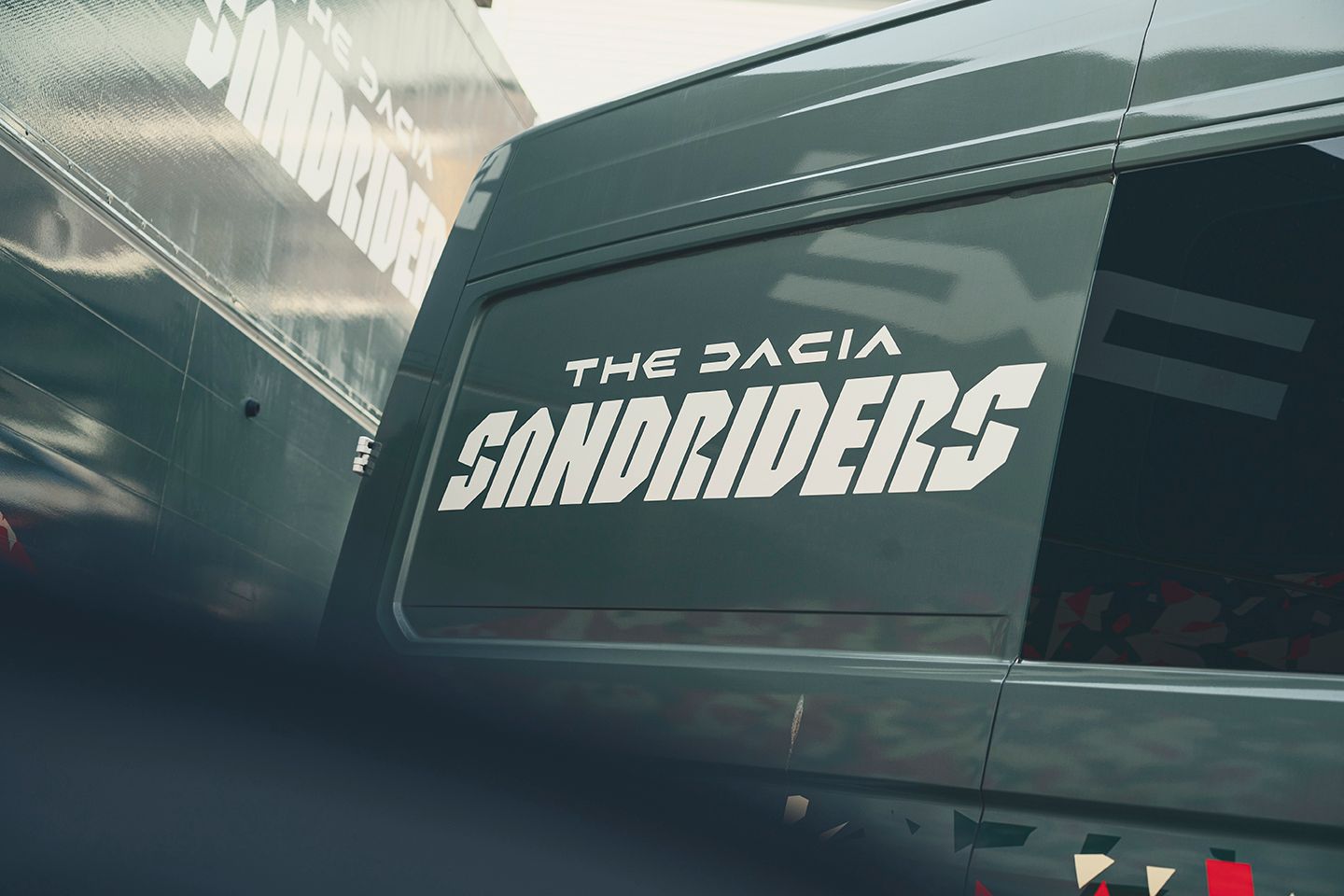
Half a ton of fuel must make the performance very different between full and empty. That’s a huge difference.
Half a ton of fuel must make the performance very different between full and empty. That’s a huge difference.
Gassing Station | General Gassing | Top of Page | What's New | My Stuff





